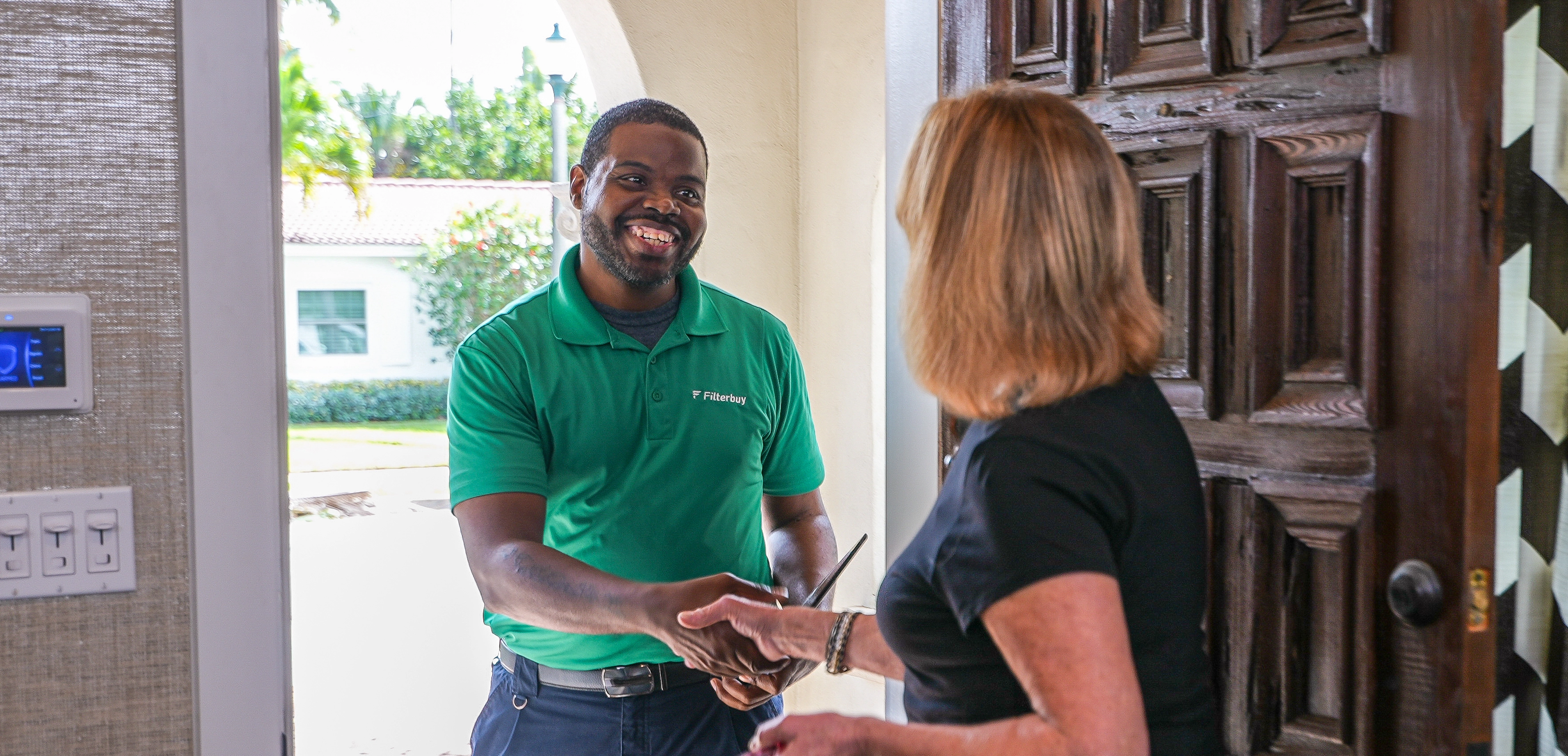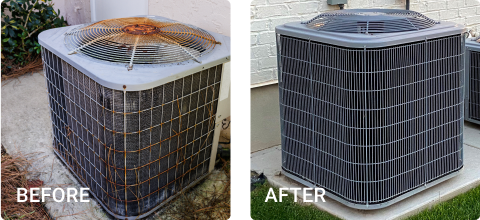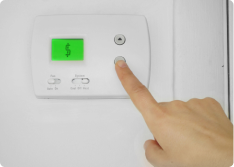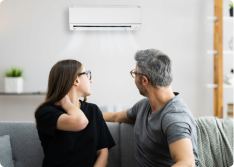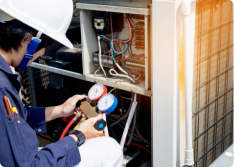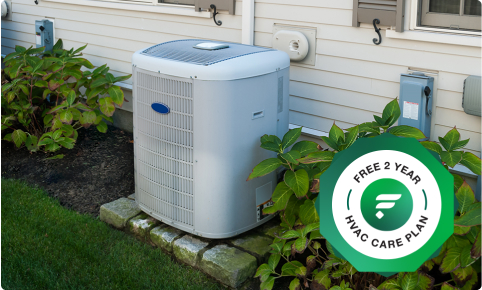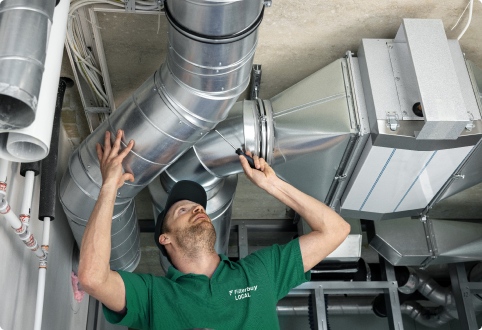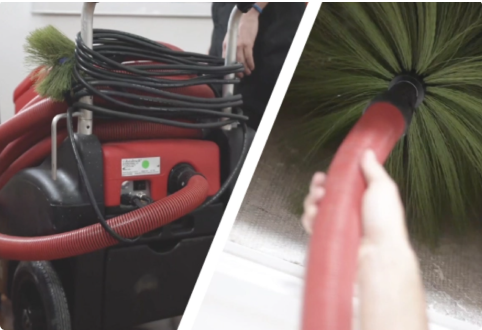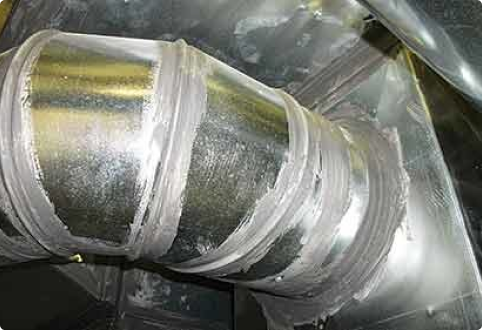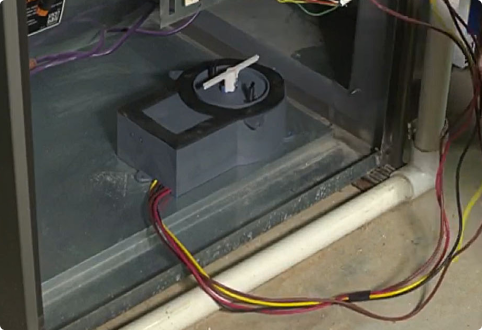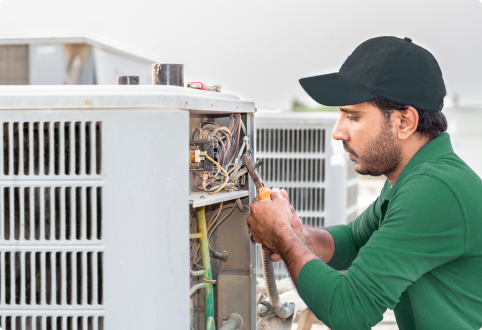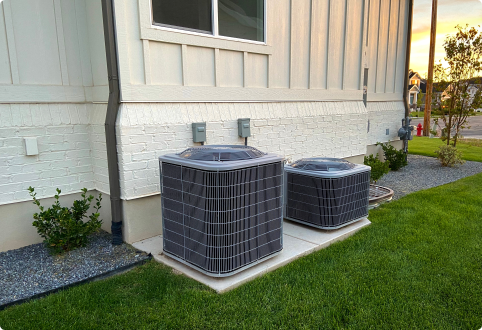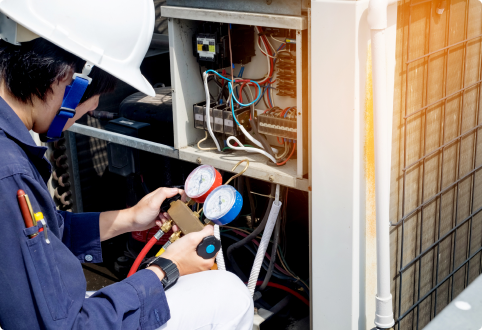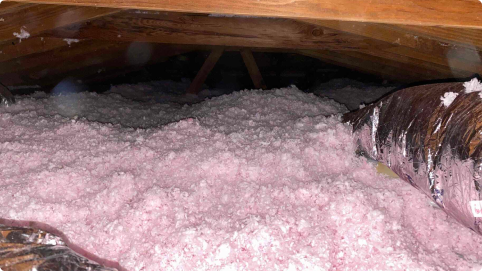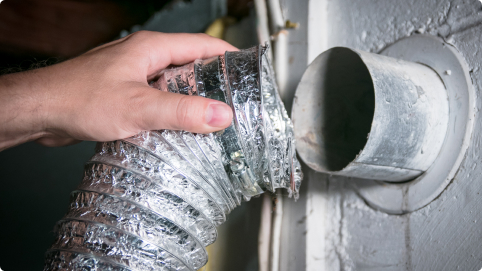Welcome to Filterbuy HVAC Solutions, the best HVAC system installation service company proudly serving in and near the greater Homestead, FL area. Please let us know how we can help solve your Homestead HVAC system installation needs with professional, affordable, and fast residential and commercial HVAC services by getting a free online quote or by giving our friendly HVAC specialists a call. We look forward to hearing from you!
HVAC Installation Homestead
Installing a new HVAC system in a home is like building the foundation of a house - it's an essential step that cannot be overlooked. With proper installation and maintenance, homeowners can expect their heating and cooling systems to last for years with minimal repairs or service calls. This article will discuss the important aspects of HVAC installation in Homestead, from selecting the right type of unit to the professional services available in the area.
An appropriate HVAC system for any space is crucial for optimal performance and energy efficiency. A qualified technician should be consulted when deciding on the best equipment for your needs. A wide range of units is available, from window air conditioners to full-scale central air conditioning systems. It's also important to consider cost considerations such as fuel source, size requirements, and additional features.
Once the correct unit has been chosen, specialized technicians can help with installation by ensuring all components are properly connected and securely fastened into place. Professional facilities usually connect existing ductwork to electrical wiring while adhering to local codes and manufacturer specifications. Additionally, experienced installers know how to seal any gaps between walls or floors, which could cause loss of conditioned air or decrease overall energy efficiency levels.
Types Of HVAC Systems
Given that heating, ventilation, and air conditioning (HVAC) systems are a significant investment for any homeowner, it is understandable to be overwhelmed by the selection process. However, understanding the types of HVAC systems available can provide essential insight into how best to suit one's needs.
The first type of HVAC system commonly found in homes is split-system technology; this involves two separate units, an outdoor condenser containing a compressor and coil and an indoor evaporator coil coupled with a furnace or fan unit. The second main option is packaged units which typically include all components within a single outdoor cabinet. Heat pumps are another HVAC system that utilizes electricity instead of gas and oil to produce heat and cool air while providing effective dehumidification capabilities. Finally, ductless mini-split systems offer cooling and heating options through individual wall-mounted blowers connected by refrigerant lines running from an outdoor condensing unit.
Each type of HVAC system offers various levels of efficiency depending on factors such as geography, climate conditions, and local utility costs - making careful consideration necessary when selecting what kind might be most suitable for one's home installation project.
Factors To Consider When Selecting An HVAC System
Selecting an HVAC system for a homestead is a critical decision with long-term implications. It requires careful consideration to ensure the appropriate choice is made. When choosing an HVAC system, several factors need to be considered.
First, it is important to assess the size of the home and determine what type of system will best suit its needs. When making this determination, the amount of space that needs to be cooled or heated should also be considered. Furthermore, energy efficiency must be evaluated to minimize monthly costs while maintaining comfort within the home. Additionally, regional climate conditions can influence which types of systems are most effective and cost-efficient for a given area.
Next, installation requirements are essential in determining the proper HVAC system for a particular homestead. This includes assessing available power sources and ventilation needs such as air ducts and fans. In addition, access points for maintenance purposes should be identified before any purchase decisions are made. Moreover, noise levels generated by different models should also be considered during the selection processes so as not to disturb occupants' peace of mind and enjoyment of their property.
With all these considerations accounted for, homeowners can confidently make informed decisions regarding their ideal heating and cooling solutions with confidence that they have selected the optimal unit for their specific environment and circumstances. Moving forward, attention turns towards exploring the advantages of installing an HVAC system in one's Homestead...
Advantages Of Installing An HVAC System In A Homestead
Several factors must be considered when discussing the advantages of installing an HVAC system in a homestead. The most important factor is energy efficiency, which can help reduce monthly utility bills and increase overall comfort in the home. Additionally, proper installation of an HVAC system helps to provide improved air quality throughout the entire house. Here are some key benefits of installing an HVAC system in a homestead:
• Reduces Energy Bills: Installing an efficient heating and cooling system will help you save money on your monthly electricity bill by providing greater control over temperature settings.
• Improved Air Quality: An effective HVAC system filters out dust, pollen, pet dander, smoke particles, and other airborne substances that can cause respiratory problems or allergies.
• Noise Reduction: A properly installed unit reduces noise pollution while producing comfortable temperatures indoors without disruption from outside noises such as traffic or construction sites nearby.
In addition to these advantages, installing an HVAC system in a homestead also adds value to the property should one decide to sell at any time. This increase in resale value makes investing in an HVAC system worthwhile for homeowners looking for long-term solutions. Moving forward, we'll explore what criteria should be considered when hiring someone to install your new HVAC system.
What To Look For In An HVAC Installer
Choosing the right HVAC installer for your Homestead is critical to correctly completing the installation. On the one hand, opting for an experienced and licensed professional is ideal; on the other, finding someone reliable who meets all the specifications can be expensive and time-consuming. Here are some key points to consider when selecting an HVAC installer:
• Professional qualifications: Ensure the technician you hire has been trained in installing systems specific to your home's needs. Also, look for certifications such as NATE or EPA certification which will ensure they have adequate knowledge about this field.
• Reputation & references: Ask friends and family if they know anyone with experience in HVAC installations or check online reviews from previous customers. Get at least three references before comparing the quality of work, cost breakdowns, warranties offered, etc.
• Price estimates: Obtain quotes from multiple installers, including details like labor costs, any additional materials needed, estimated completion date, etc., while also checking out any discounts they may offer. Compare these against each other to ensure you get the best deal possible without compromising on quality standards.
Finally, once you've narrowed down on a few contractors based on their skill sets and recommendations, then arrange an appointment where they can inspect your property thoroughly and provide more accurate price estimates tailored specifically to your needs.
Preparing Your Home For An HVAC Installation
To ensure a successful HVAC installation, preparation of the home is essential. Several steps should be taken before the installation work to proceed without any problems. Firstly, all furniture and decorations must be removed from the area surrounding where the system will be installed. This allows for adequate space for technicians to move freely while carrying out their tasks; additionally, it eliminates potential damage or destruction to these items if debris were to fly into them during an intense job such as this one.
Next, the walls and floors around the site must be checked for any signs of damage caused by moisture or other environmental factors. If there is evidence of mold growth or water infiltration, appropriate remedial measures should be taken before proceeding with further work. The same goes for any cracks or gaps in walls or flooring that may need caulking before installation day. Doing so ensures that no additional issues arise due to preexisting conditions that could cause costly delays.
Finally, familiarize yourself with local building codes related to HVAC systems ahead of time, as many areas have specific requirements regarding size, type, and placement within homes. Knowing what's expected beforehand ensures you don't run into any legal snags once your new unit is ready for use - thus paving the way toward efficient and problem-free installation. Understanding the steps involved in installing an HVAC system requires knowledge of local regulations and taking care of pre-installation housekeeping matters first.
Steps Involved In Installing An HVAC System
Before delving into the steps involved in installing an HVAC system, it is worth considering the importance of such systems. The heating, ventilation, and air conditioning (HVAC) industry has been booming in recent years due to increased demand for more energy-efficient solutions that can help reduce emissions. As a result, installing these systems has become increasingly popular among homeowners looking to make their homes comfortable while lowering their monthly energy costs.
Once a homeowner decides to install an HVAC system, there are certain key steps they need to take before beginning the process. First and foremost, they must select and purchase all necessary components based on the size and type of unit required for their particular space. Additionally, any existing ductwork or electrical wiring needs to be assessed by a qualified technician to determine if additional changes or modifications must be made before installation. Once this evaluation is complete, then the actual installation work can begin.
The specific procedure for each HVAC project may vary depending upon its complexity but typically involves mounting and connecting various components, including blowers, condensers, evaporators, thermostats, and filters with either copper tubing or flexible plastic hoses. In addition, many newer models require special programming requiring technical knowledge and software skills to ensure the proper functioning of all parts involved. With careful planning and attention to detail during each stage of the process, successful completion of an HVAC installation project results in improved comfort levels within a given space and reduced operating costs associated with running the equipment over time. Transitioning from theory towards practice: what should one ask their installer when installing HVAC?
What To Ask Your HVAC Installer
Installing an HVAC system is a complex process that requires accurate measurements, knowledge of building codes and regulations, and familiarity with the equipment. It also involves properly assessing the space to determine what type of system should be installed. As such, homeowners need to ask their HVAC installer questions both before installation and after completion to ensure that the job has been done correctly and safely.
Questions before installation may involve details about the specific brand or model being installed and information regarding warranties, certifications, and any additional services the contractor offers. Homeowners should also inquire about energy efficiency ratings and expected cost savings from running the new system. Additionally, they can seek estimates on how long it will take to recoup their investment based on current utility costs.
Moreover, asking questions post-installation allows homeowners to confirm whether all safety features are functioning properly, if there were any issues during setup that need further attention, or if possible upgrades that could improve performance while utilizing existing equipment. Furthermore, they should ensure the contractor reviews potential service plans in case anything goes wrong with the unit; this includes regular maintenance schedules and emergency repair contracts covering repairs outside of normal business hours.
By taking these steps during an HVAC installation project in Homestead, Florida area homes, homeowners can gain peace of mind knowing that their home's heating and cooling system was set up according to industry standards – ensuring efficient operation for years to come. This leads us to our next section, where we explore common issues associated with installing an HVAC system.
Common Issues After An HVAC Installation
After installing a new HVAC system, it is important to check for any common issues that may arise. Issues such as insufficient cooling or heating, poor air quality, or strange noises can cause problems. Additionally, certain components in the unit can be prone to malfunctioning and need regular maintenance.
Homeowners should inspect their systems after an HVAC installer has installed them. This will help ensure that everything has been properly connected and working correctly. If anything appears wrong with the unit, it's best to contact the installer immediately rather than try and fix it yourself since many components are complicated and involve electricity. Furthermore, some parts of a unit may only be accessible from within the walls due to their location, so attempting repairs could potentially result in further damage if not done carefully by a professional technician.
It is also important to keep track of items like filters which often need replacing to maintain the system's proper operation over time. Filters should be cleaned or replaced at least every six months, depending on how often the unit is used; this helps prevent dirt buildup, limiting air, limiting the device, and leading to greater energy consumption while decreasing its effectiveness. Regular maintenance ensures that your HVAC system remains optimally in its lifetime without costly repairs or breakdowns due to negligence.
Benefits Of Regular Maintenance of an HVAC System
The importance of regular maintenance on an HVAC system can be likened to the oil change for a car - it should not be overlooked. It might even be more important: A well-maintained air conditioning and ventilation system keeps your home comfortable while maximizing energy efficiency and reducing costs in the long run. While its benefits are clear, what exactly does regular maintenance on an HVAC system involve?
Regular maintenance typically includes checking filters, cleaning ducts, inspecting the wiring and other components, monitoring refrigerant levels, and making necessary repairs or adjustments. By regularly servicing these systems, homeowners will take advantage of improved performance and reduce their risk of needing expensive repairs. Additionally, routine check-ups guarantee optimal safety and comfort by preventing potential health hazards such as carbon monoxide poisoning or poor indoor air quality caused by dust particles accumulating in vents.
HVAC technicians have specialized knowledge to perform effective preventative care; therefore, homeowners must seek help from a professional when performing this type of service, ensuring all parts function properly. With proper attention given to maintaining the condition of one's heating or cooling unit, short-term requirements like temperature control throughout various seasons and long-term goals such as energy savings can be easily achieved. Understanding how much an HVAC installation costs in a homestead is another key factor to consider before investing in such equipment.
Cost Of HVAC Installation In A Homestead
Installing an HVAC system in a homestead is an important step to ensuring the comfort of its inhabitants. Understanding the cost associated with this installation can benefit homeowners looking to take on such projects. Now, we will explore the costs of installing an HVAC system in a homestead.
1) Labor: Homeowners should factor in labor when calculating their budget for an HVAC installation project. A professional contractor may charge between $50 and $100 per hour, depending on geographic location and experience. Furthermore, additional fees may apply if extra work needs to be done or supplies must be purchased from outside sources.
2) Equipment Cost: The type of equipment used for an HVAC installation plays a major role in overall cost. Heating systems range from cheaper units that use electric heating to more co tones and geothermal heat pumps. In addition, air conditioning requires different types of components which vary greatly in price.
3) Installation Supplies: Many materials are necessary during an HVAC installation, including tools, connectors, piping insulation, ductwork accessories, etc., all of which come at varying prices based on quality and material type chosen by the homeowner/contractor pair. Additionally, multiple trips may have to be made to purchase these items, which could incur additional transportation expenses.
Overall, it is important for those investing in an HVAC system to understand the potential issues they might encounter regarding pricing along each portion of the process, from labor costs to materials required throughout the installation. However, proper research and planning can establish reasonable budgets before beginning any job like this one.
Frequently Asked Questions
How Long Does It Take To Install An HVAC System?
Installing an HVAC system is a complex process requiring skillful technicians. The time needed to install the system depends on several factors, including the size and complexity of the project as well as the qualifications of the technicians. As such, it can take two days for simpler systems to several weeks for larger or more intricate projects.
It is important to note that any potential delays in completion should be considered when considering the overall duration of the installation. For instance, if materials need to be ordered from a supplier or are unavailable locally, this will add additional time to the job. Additionally, personnel's availability and skill set may also impact how long a project takes since inexperienced contractors will require extra training and supervision before they can begin working autonomously.
Therefore, due to the unpredictable nature of HVAC installations, planners must consider all variables to forecast both cost and timeline requirements for these jobs accurately. It is essential that proper planning is done before undertaking any major HVAC installations to ensure successful outcomes with minimal disruption during its implementation phase.
What Safety Measures Should I Take During The Installation?
Installing a heating, ventilation, and air conditioning system (HVAC) is an important task that requires precise skills to ensure the safety of those involved. According to research, at least 20% of all HVAC installations need repair within five years due to improper installation or lack of quality materials. As such, it is essential for anyone considering an HVAC installation in their home to take certain safety measures during the process.
One of the most important safety precautions involves researching the qualifications of technicians handling the job. It is recommended that homeowners check with local authorities regarding contractors that are licensed and certified by recognized industry associations like The Air Conditioning Contractors of America or The Refrigeration Service Engineers Society. Furthermore, they should ensure that subcontractors have insurance and workers' compensation coverage as required by law.
It is also advisable for homeowners to ask whether any newly installed parts meet current standards set out by organizations like ASHRAE or UL, which provide guidelines on energy efficiency requirements and other safety criteria. Additionally, checking references from previous customers can help confirm if the contractor has experience with successful projects similar in scope and size. Finally, homeowners should review a contract carefully before signing to understand exactly what services are included in the project.
Are There Any Warranties Provided For The HVAC Installation?
When installing a new HVAC system, homeowners should know the warranties provided for the installation work. While this may seem like an afterthought, these warranties can offer great security and peace of mind if anything goes wrong with the unit or its components during or after the installation. The stakes are high when dealing with home improvement projects such as this one; thus, having some form of insurance is essential.
Homeowners can expect several forms of warranty coverage from their installers. For starters, many companies offer a manufacturer's limited parts warranty that typically covers any defective material used in the installation process for up to ten years. This type of protection ensures that if something happens to go awry due to faulty materials, the homeowner won't have to bear those costs alone. Most professional installers will also provide labor warranties covering any labor-related issues that may arise within a certain period (e.g., one year).
In short, it is always wise to inquire about what kind of warranty coverage your contractor offers before starting an HVAC installation project - especially given how significant an investment this often is! Quality assurance upfront could save you thousands by eliminating potential repair bills caused by faulty materials or shoddy artistry. After all, why risk being left out in the cold?
Are There Any Special Considerations For Installation In A Rural Area?
When installing an HVAC system in any area, it is important to consider the particularities of that location. There are certain considerations for installation in rural areas instead of other more urban sites. When selecting a special aid for the power grid and infrastructure.
In a rural area, selecting an appropriate HVAC unit to access electricity from a main utility provider may not be possible. In this circumstance, alternative sources such as solar or wind-generated energy should be considered. Additionally, if there is no existing ductwork, a seller must take additional steps to ensure proper air circulation throughout the home. It is also important that the chosen equipment can handle large temperature fluctuations common with outdoor temperatures in rural locales.
Finally, warranties for HVAC installations vary depending on the manufacturer and dealer selected; however, customers should ensure they understand what their coverage entails before signing any paperwork. A thorough understanding of the terms of warranty protection can help provide peace of mind during ownership of the new HVAC system. To protect their investment, homeowners should carefully research all manufacturers and dealers before deciding.
What Type Of Maintenance Do I Need To Perform On My HVAC System?
The maintenance of an HVAC system is like the beating heart in a body - it needs constant attention to keep running smoothly. Symbolically, regular maintenance can be compared to the wind that blows softly on an autumn day – providing just enough energy and momentum to sustain life's daily activities. Homeowners need to understand what type of upkeep their heating and cooling systems require to operate optimally and efficiently.
To ensure your HVAC system works as intended, here are five essential items you should add to your maintenance routine:
•Checking air filters regularly – this should be done every 30 days or more frequently if you have pets;
•Cleaning coils – use a soft brush attachment on a vacuum cleaner;
•Testing thermostat operations – check for accurate temperature readings;
•Inspect all electrical connections – replace any worn wires or components;
•Lubricate moving parts – motor lubrication will help increase efficiency.
By following these steps diligently, you will reduce operational costs, extend the equipment's service life, and ensure everyone using its safety. Additionally, scheduling professional inspections once or twice yearly is recommended to identify potential problems before they become bigger. Taking action now prevents costly repairs while guaranteeing less disruption throughout the year from unanticipated breakdowns.
What Does a New HVAC System Cost in Florida?
Investing in a new HVAC system is a significant undertaking for any Florida homeowner. The cost can considerably vary depending on several factors, such as the size of the home, the type of system, the complexity of the installation, and the specific climate needs of the region. This guide aims to provide a comprehensive overview of these factors and their impact on the overall cost of a new HVAC system in Florida. Through this, homeowners can gain a clearer understanding of what to expect financially, enabling them to make informed decisions regarding their HVAC investment.
Understanding HVAC System Costs in Florida
How exactly are the costs of a new HVAC system in Florida determined? Primarily, the cost variables are twofold. Firstly, the price of the HVAC unit itself varies based on size, brand, and efficiency. Secondly, installation expenses which include labor costs, materials, and potential modifications to your home's existing system. Understanding these variables is crucial for accurate budgeting.
Do I Need a Permit to Install a New AC Unit in Florida?
In Florida, installing a new air conditioning unit involves not only technical considerations but also regulatory compliance. The question of whether a permit is required for such an installation is one that homeowners and contractors often grapple with. This article aims to shed light on the specific requirements and guidelines set by the Florida Building Code and local authorities about air conditioning installation. It will provide valuable insights to help you navigate the process of obtaining necessary permits if needed, ensuring a smooth and legal installation process. Understanding these regulations can help avoid potential penalties, ensuring your home improvement projects proceed without legal hindrance.
Understanding Florida's AC Installation Regulations
In the vast majority of Florida's jurisdictions, specific guidelines and regulations govern the installation of new AC units, necessitating a permit. Understanding these rules requires careful regulation interpretation. Complying with these permit requirements is not an option but a necessity. Non-compliance can lead to penalties, making it crucial to understand and adhere to these regulations before initiating any AC installation project.
Why Does HVAC Installation Cost So Much?
HVAC installations are a significant investment due to the complexity of the systems and the expertise required to install them. This initial cost, while substantial, ensures a correctly installed and efficient system that extends longevity and performance. Factors influencing the cost include the type of HVAC system, the size of your property, ductwork condition, and the labor involved. Additionally, the price may increase depending on regional pricing variations, permit requirements, and whether any structural modifications are necessary. Understanding the factors contributing to the overall cost can provide clarity and help homeowners make informed decisions regarding their HVAC installation.
Understanding HVAC Installation Pricing Factors
Several key factors contribute to the overall cost of HVAC installation, which is essential to understand for budget planning purposes. Pricing variables such as equipment type and quality significantly influence the cost. Labor costs, a significant portion of the total expense, vary based on contractor expertise and the complexity of the installation. Understanding these factors can help in effective financial planning.
What Is the Most Common HVAC System in Florida?
In the diverse market of heating, ventilation, and air conditioning (HVAC) systems, certain models prove more effective in specific geographic locations due to varying climatic conditions. In the state of Florida, known for its hot, humid climate, the most prevalent HVAC system is the central air conditioner unit. This system is favored due to its capacity to cool large spaces efficiently, a crucial requirement for Florida's often high temperatures. Understanding the distinctive functionality of the central air conditioner unit and why it is a common choice among Florida residents provides insights into optimal HVAC solutions for hot and humid climates.
Understanding Florida's Dominant HVAC System
The majority of Florida households utilize central air conditioning systems due to the state's consistently high temperatures and humidity levels. System efficiency is a crucial factor, as higher-efficiency units reduce electricity usage and lower bills. Moreover, these systems' climate impact is significant, with efficient models mitigating harmful emissions - a major concern in an era of environmental consciousness.
How Much Is a New AC Unit for a 1500 Sq Ft House in Florida?
Determining the cost of a new air conditioning unit for a 1500-square-foot house in Florida is a complex process that involves several factors. These include the size and efficiency of the unit, the specific cooling needs of the environment, and the installation costs. This article aims to provide an in-depth analysis of these factors and offer a comprehensive guide to estimating the overall costs. Our goal is to provide homeowners with the necessary information to make an informed decision about their cooling requirements and potential investment.
Understanding AC Unit Pricing
While it is essential to consider various factors, the price of a new AC unit primarily depends on its size, brand, installation complexity, and energy efficiency ratings. These are the major Pricing Variables. Understanding these Cost Factors helps homeowners plan effectively for a new AC unit installation, ensuring they find a balance between cost, performance, and energy efficiency.
What Is the Average Life of an HVAC System in Florida?
In the context of HVAC systems in Florida, homeowners often ponder the question of their unit's lifespan. The average life of an HVAC system in this state is subject to several factors such as maintenance routine, usage, and the system's overall quality, among others. Typically, most HVAC systems in Florida can last between 10 to 15 years. However, regular, professional maintenance can significantly extend this average lifespan. This topic seeks to explore in detail the factors that affect the lifespan of an HVAC system in Florida and how to maximize its operational life.
Understanding HVAC Lifespan in Florida
In Florida, the lifespan of an HVAC system depends on various factors such as its model, maintenance, usage, and the state's unique climatic conditions. The climate impact is notable, with fluctuating temperatures affecting system longevity. Maintenance frequency also plays a significant role. Regular upkeep can prolong system life, reducing the need for premature replacements and saving homeowners considerable expense.
How Much Does It Cost to Replace Ductwork in Florida?
The costs associated with replacing ductwork in Florida can vary significantly based on several factors. These include the size of the property, the complexity of the existing HVAC system, and the specific requirements of the project. Additionally, material costs, labor charges, and any potential additional repairs or upgrades can impact the total expense. This article aims to provide a comprehensive guide to the various costs that may be involved in a ductwork replacement project in Florida, thereby equipping homeowners with the necessary information to make informed financial decisions.
Understanding Ductwork Replacement Costs
To understand the costs associated with ductwork replacement in Florida, one must consider several key factors including the size of the home, the complexity of the duct system, and labor expenses. A detailed cost factors analysis should be undertaken to determine the most efficient replacement techniques. This will ensure a clear understanding of the financial implications and help in planning for the replacement.
Does a New HVAC System Increase Home Value?
The value of a home is influenced by various factors, among which the efficiency and quality of its HVAC (Heating, Ventilation, and Air Conditioning) system holds significant importance. An upgraded HVAC system not only provides better temperature regulation but also contributes to energy efficiency, which is a sought-after feature in modern homes. This article will explore the relationship between the installation of a new HVAC system and the potential increase in home value, providing insights for homeowners considering such an improvement. The discussion will be grounded in recent market trends, energy efficiency considerations, and expert opinions in the real estate and HVAC industries.
Impact of HVAC System on Home Value
While it may not be immediately apparent, the condition and quality of a home's HVAC system can significantly influence its overall value. During an Energy Efficiency Evaluation, key metrics of the HVAC system, such as its operating efficiency and expected lifespan, are assessed. These HVAC Lifespan Considerations can greatly impact a property's appeal to potential buyers, hence affecting its market price.
Can You Do HVAC Work Without a License in Florida?
In the state of Florida, HVAC (Heating, Ventilation, and Air Conditioning) work is governed by stringent regulations. This article discusses the specific licensing requirements for conducting HVAC work in Florida. It delves into the legal implications of operating without a license, underlining the importance of compliance with state laws. To promote safety and quality in HVAC services, these licensing requirements are crucial for all professionals in the field. Whether a seasoned HVAC technician or a newcomer, understanding Florida's HVAC licensing laws is essential for a successful career in this industry.
Understanding Florida's HVAC Licensing Laws
In Florida, all individuals performing the vast majority of HVAC work are legally required to possess a valid, state-issued license. Under this mandate, the Licensing Requirements are stringent and designed to ensure competence and safety in the trade. Failure to adhere to these laws can result in severe Legal Consequences, including fines, penalties, and potential prohibition from practicing in the field.
Can a Homeowner Pull an HVAC Permit in Florida?
In the state of Florida, the process of obtaining HVAC permits can be complex, particularly for homeowners navigating it for the first time. This article is intended to provide clarity on the question: "Can a homeowner pull an HVAC permit in Florida?" We will delve into the specifics of Florida's regulations, including the conditions under which homeowners themselves can obtain these permits. The objective is to offer a clear understanding of the legal requirements involved in HVAC installation and modification within a residential setting in Florida, aiding homeowners in ensuring compliance with all necessary laws and regulations.
Understanding Florida's HVAC Permit Regulations
In Florida, one must comprehend the specific HVAC permit regulations set by the state before undertaking any HVAC-related renovations or installations in their home. Understanding the permit application process is crucial, as is meeting the HVAC installation requirements. This involves submitting appropriate paperwork, ensuring compliance with local codes, and acquiring the necessary inspections to guarantee a safe and efficient HVAC system.
What Happens if You Don't Pull a Permit in Florida?
In Florida, pulling permits for construction or major home renovations is not merely advisable, it's legally required. Failure to obtain the necessary permits can result in serious repercussions. This may include hefty fines, halting of construction, and potential legal ramifications. Furthermore, unpermitted work may lead to issues when selling the property as it can affect the home's insurability and market value. Not pulling permits can also result in non-compliance with the Florida Building Code, posing potential safety risks. Thus, understanding the consequences of not pulling permits is crucial for homeowners and contractors in Florida.
Consequences of Not Pulling Permits
A homeowner's failure to pull necessary permits in Florida can lead to severe consequences, impacting both the completion and legality of their construction project. The Permit Violation Impacts range from hefty fines to potential demolition. Moreover, Unpermitted Construction Dangers include safety risks, potential legal disputes, and diminished property value, thus stressing the importance of proper permitting.
What Time of Year Is Cheapest to Replace HVAC?
HVAC replacement costs can vary considerably depending on the time of year. Most homeowners are inclined to replace their systems during peak usage times, such as the sweltering summer months or the frigid winter season. However, these periods often correspond with high demand for HVAC professionals, which can inflate service costs. Therefore, the key to cost-effective HVAC replacement is understanding seasonal market dynamics. This article explores the best time of year for economical HVAC replacement, providing insights to help homeowners make informed decisions that balance both comfort and cost.
Analyzing Seasonal HVAC Replacement Costs
In the examination of seasonal HVAC replacement costs, it becomes evident that these costs fluctuate according to specific times of the year. A thorough cost comparison reveals that off-peak discounts can significantly reduce expenditure. Notably, the price drops during slow seasons when HVAC companies are less busy, primarily in late fall and early spring, presenting a potential savings opportunity.
Conclusion
Installing an HVAC system is a complex and important process requiring attention to detail. It is essential for individuals considering this type of project to be aware of the safety measures they must take, as well as any warranties provided by their contractor. Those living in rural areas should also evaluate unique considerations related to the installation before proceeding. Once installed, proper maintenance will ensure optimal performance and longevity of your HVAC system.
Investing in an HVAC system can provide peace of mind and comfort for those who choose it. With careful consideration given to details such as safety requirements, warranty coverage, and special needs due to location, homeowners can create an environment where warmth radiates through every room or cool air permeates each corner - a sanctuary free from the vagaries of temperature-related discomfort.
Ultimately, when you factor in all elements associated with installing an HVAC system – extensive research before purchase, adherence to safety regulations during setup, and proactive maintenance afterward – there's no doubt that investing in one is a decision worth making; allowing you to enjoy without worry while your family flourishes within its protective embrace.
Here is the nearest branch location serving the Homestead area…
Filterbuy HVAC Solutions - Miami FL
1300 S Miami Ave Unit 4806, Miami, FL 33130
(305) 306-5027
https://maps.app.goo.gl/ojfsxLUoonUa6bYr9

.webp)
.webp)
.webp)
.webp)






